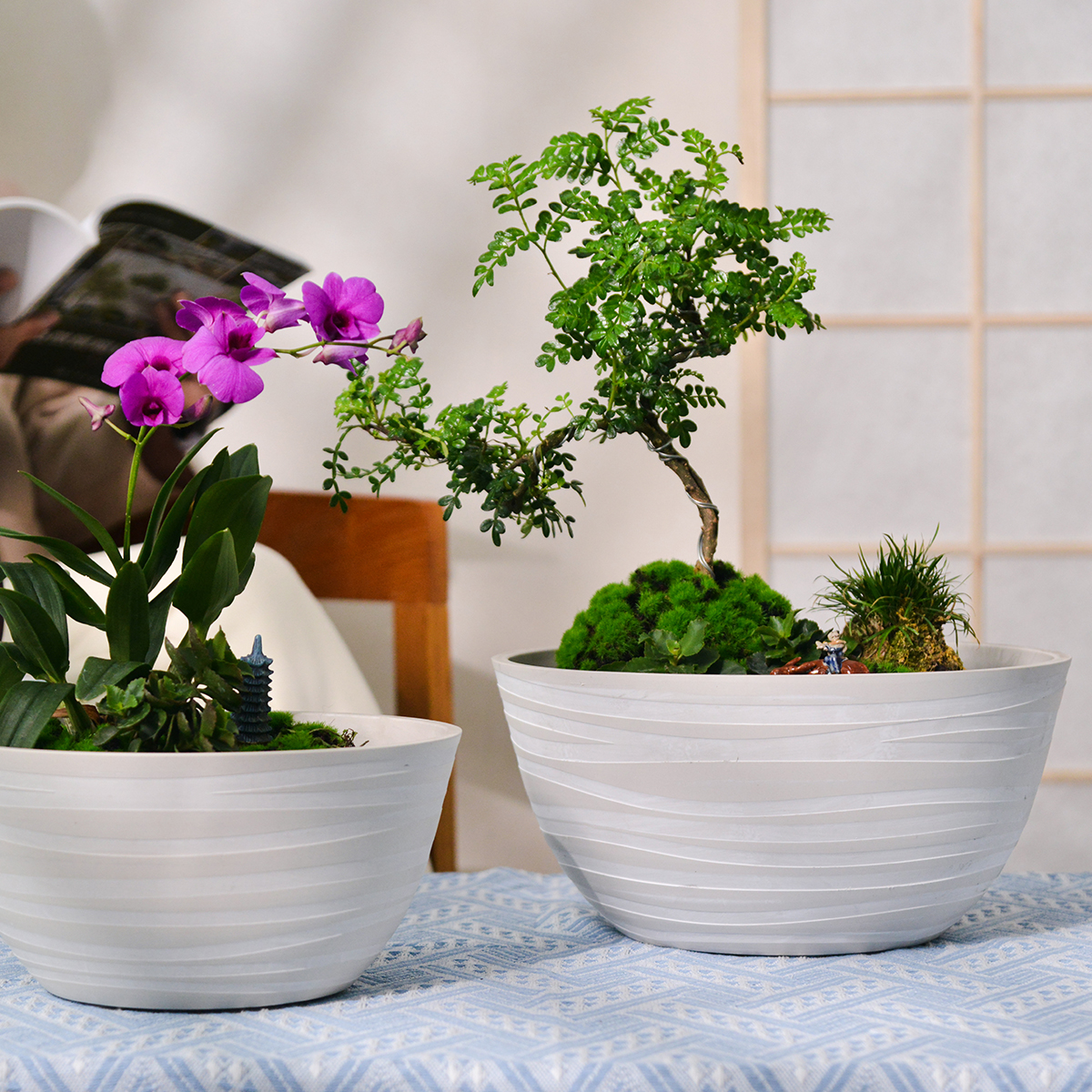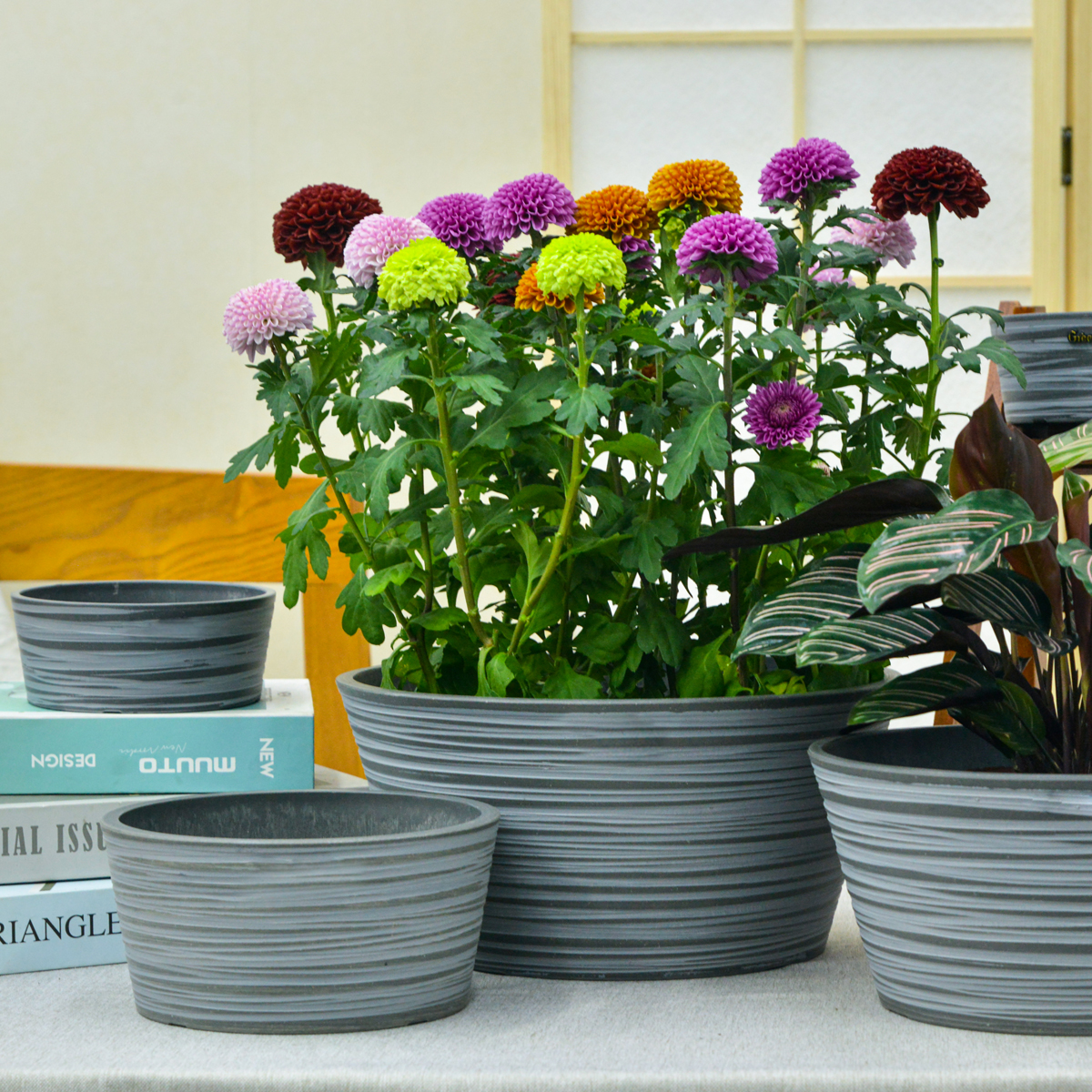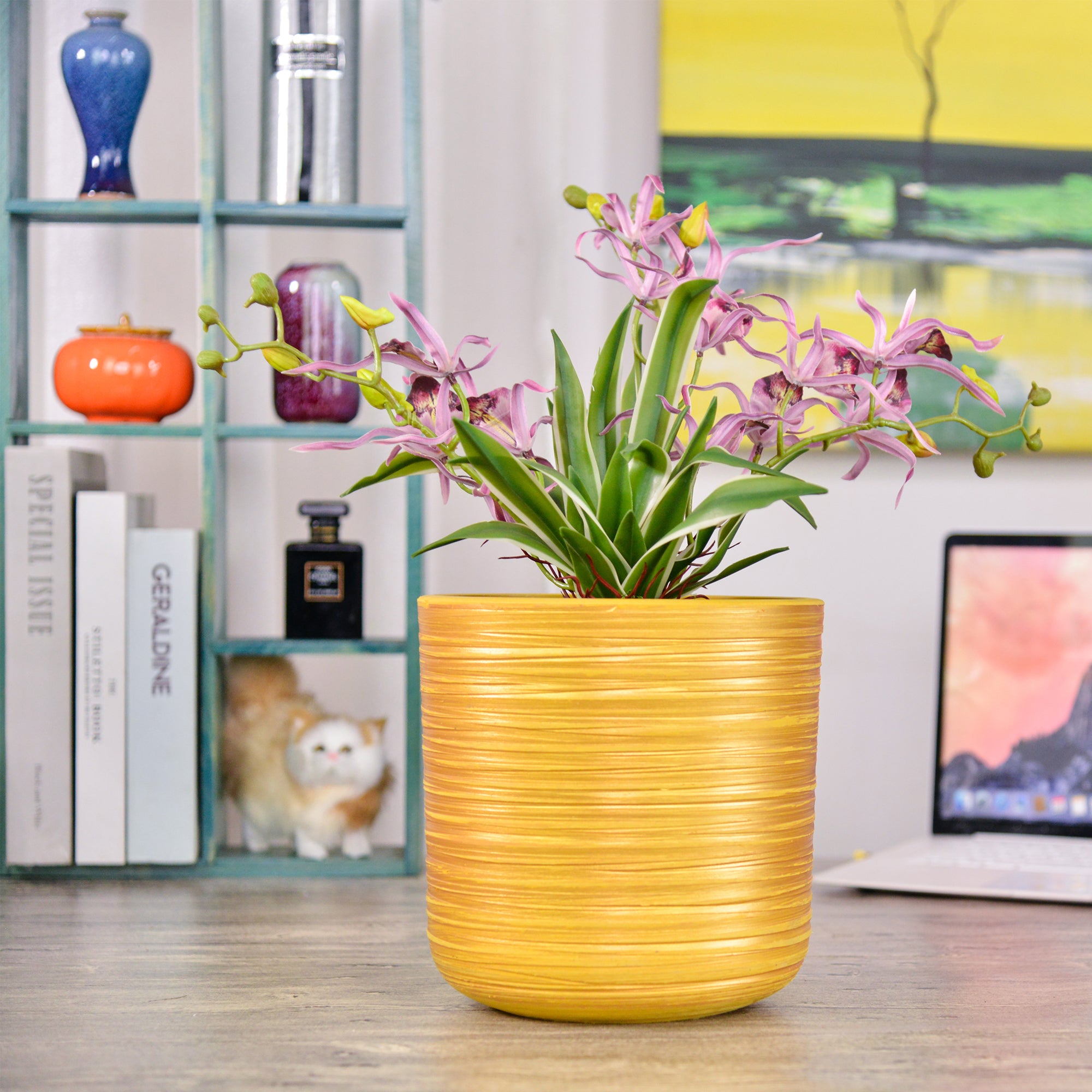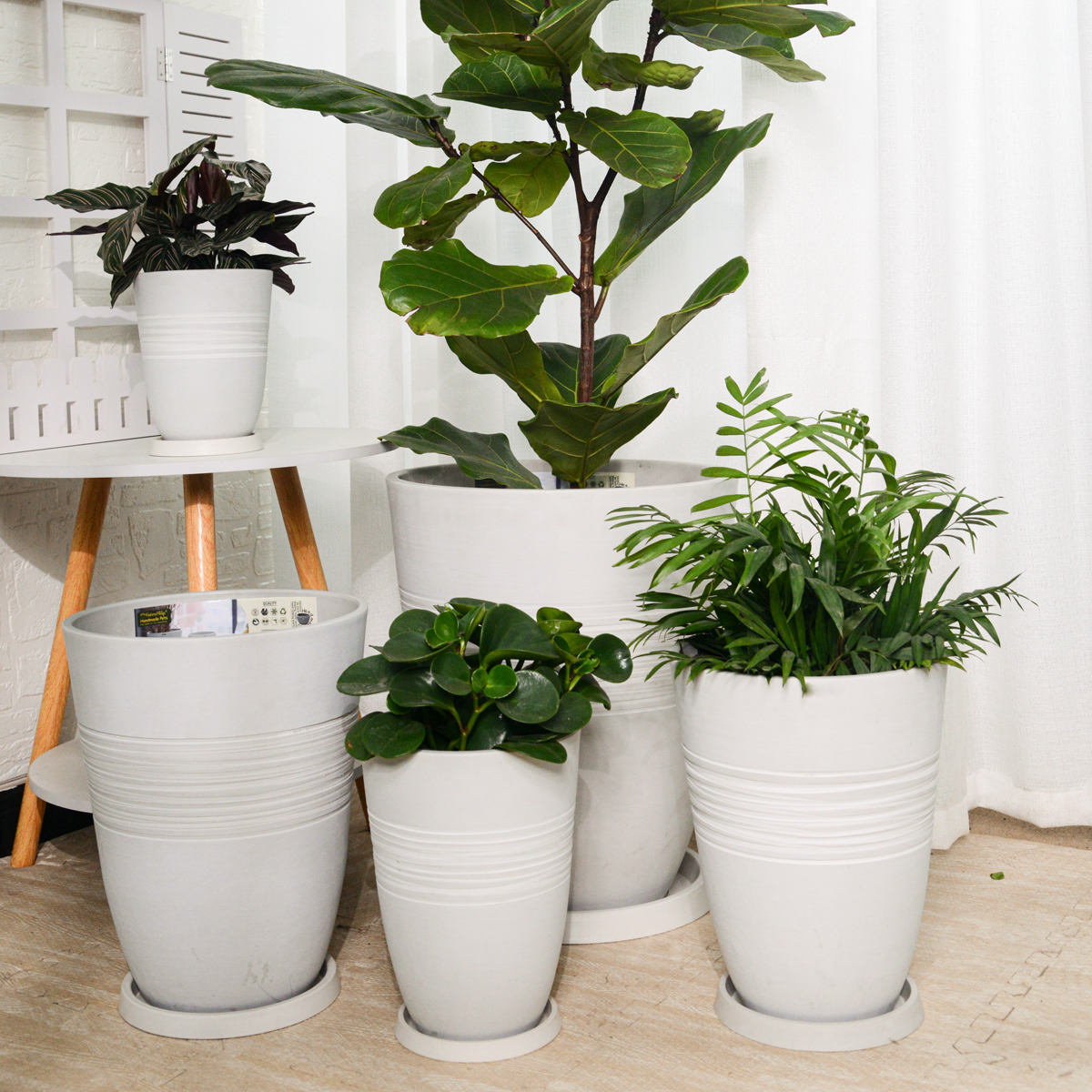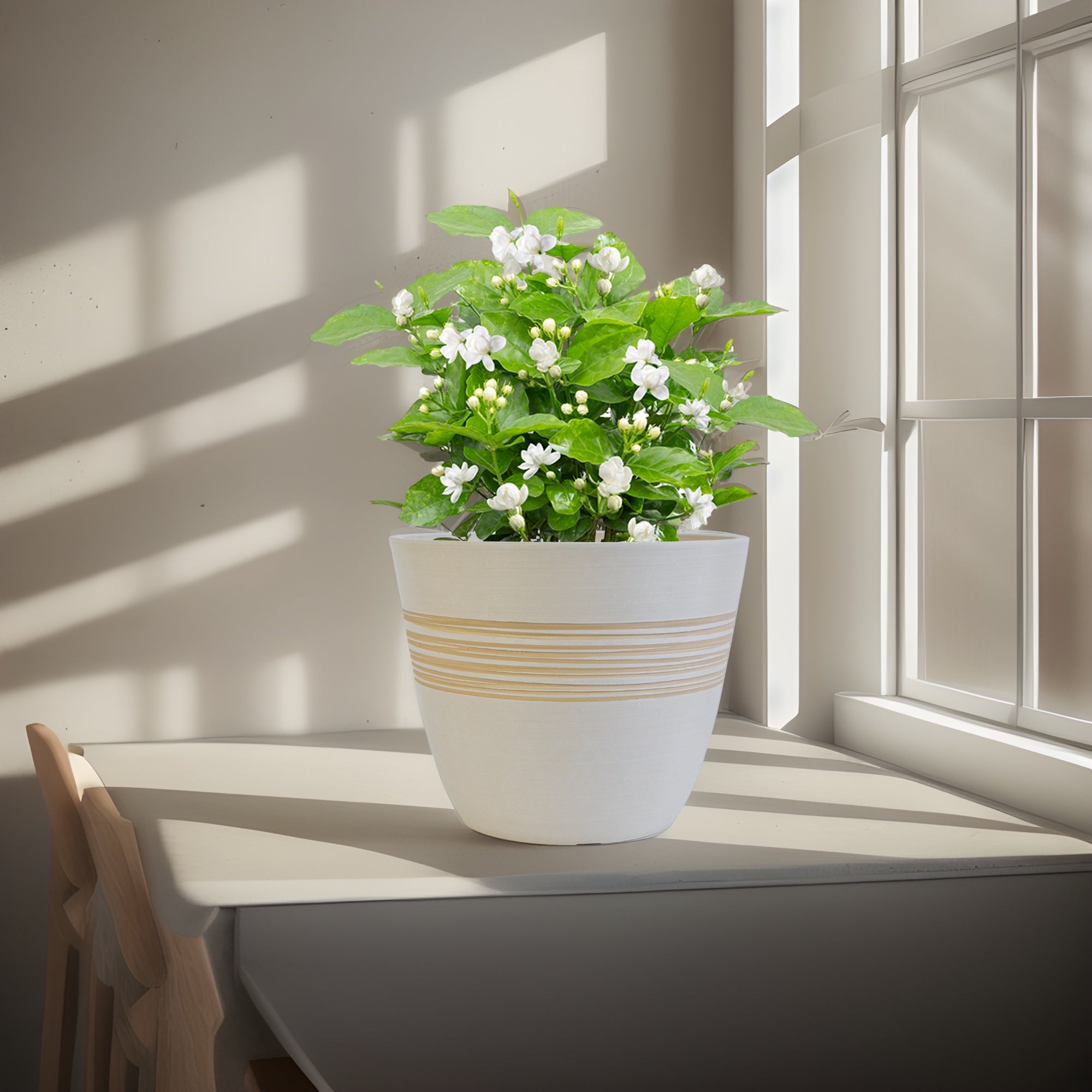Lemon and Clove Blend: Wish I’d Known This Sooner! The “Natural Insecticide” Secretly Kept by Gardening Masters – Keep Pests Away and Let Your Plants Grow Like Crazy!
Have you ever been troubled by pests infesting your flowers and plants? Chemical pesticides smell pungent, and there are concerns about harm to the environment and health. Is there no natural, safe, and effective pest control method? Of course, there is! Today, I will reveal a natural pest control secret recipe secretly kept by gardening masters – Lemon and Clove!
That’s right, just these two common kitchen ingredients can easily create a natural, safe, and effective insecticide, keeping your flowers and plants away from common pests like aphids, spider mites, and ants, saying goodbye to the worries of chemical pesticides, and peacefully enjoying a green and healthy gardening life! This article will delve into the pest-repelling principles of lemon and clove and detail the methods of making and using it, allowing you to easily become a gardening expert!
The Pest-Repelling Secrets of “Lemon + Clove”: Natural Ingredients, Double Protection
Lemon and clove, seemingly simple ingredients, contain powerful pest-repelling capabilities. This is due to their unique natural components and the synergistic effect after clever combination:
Lemon: Natural Insect Repellent, Scent Repels + Acidity Interferes
The reason why lemons can repel insects is mainly attributed to their rich content of limonene and citric acid and other components:
Limonene: Natural Repellent, Interferes with Pest Nervous System
Lemon peel and lemon juice are rich in limonene, a natural repellent. The scent of limonene is strong and refreshing, which can effectively interfere with the olfactory and nervous systems of various pests, causing them to lose their way and avoid approaching. Limonene has obvious repellent effects on pests such as aphids, ants, mosquitoes, and fruit flies.
- Limonene Pest Repelling Mechanism: Limonene molecules can bind to insect olfactory receptors, producing a pungent smell that makes insects feel uncomfortable and flee. At the same time, limonene may also interfere with neurotransmitter transmission in insects, affecting their movement and foraging behavior, thereby achieving a pest-repelling effect.
Citric Acid: Acidic Environment Creator, Inhibits Pest Growth
The acidity of lemon juice mainly comes from citric acid. Acidic environments are disliked by many pests. Citric acid can lower the pH value of plant leaf surfaces, creating an environment that is unfavorable for pest survival and reproduction, thereby playing a role in inhibiting pests. At the same time, citric acid also has certain cleaning and sterilization effects, which can remove dirt and secretions from leaves, reducing pest breeding grounds.
Clove: Natural Insecticide, Powerful Killing + Long-lasting Protection
Clove has been used as a natural insect-repelling spice since ancient times. Its core pest-repelling component is eugenol, a potent natural insecticide with broad-spectrum insecticidal activity:
Eugenol: Powerful Insecticidal Component, Contact Killing + Fumigation Double Action
Eugenol has a strong scent and irritancy, which can directly kill many pests through contact, causing them to be paralyzed and die. At the same time, eugenol is also volatile and can penetrate into the respiratory system of pests through fumigation, causing them to suffocate and die. Eugenol exhibits good killing effects on various common gardening pests such as aphids, spider mites, scale insects, and thrips.
- Eugenol Insecticidal Mechanism: Eugenol molecules can penetrate the insect’s epidermis and damage their nervous system, leading to muscle spasms, paralysis, and ultimately death in insects. Fumigation effect achieves insecticidal effect through odor stimulation and respiratory inhibition. In addition, eugenol also has certain antibacterial and antifungal effects, which can assist in preventing and controlling plant diseases.
“Lemon + Clove” Golden Combination: Synergistic Effect, Better Pest Control
Both lemon and clove have pest-repelling effects. When they are cleverly combined, they can exert a synergistic effect, making the pest control effect more comprehensive and longer-lasting:
- Complementary Scents, Wider Range of Repelling: The fresh scent of lemon and the strong aroma of clove complement each other, which can repel more types of pests and expand the range of repellency.
- Synergistic Mechanism of Action, Stronger Insecticidal Effect: The repellent and acidic interference of lemon, combined with the contact killing and fumigation effect of clove, work together, which can more effectively kill pests and improve the success rate of pest control.
- Long-lasting Protection, Extends Pest Repelling Time: Clove volatility is slower, and limonene also has a certain slow-release effect. The combination of the two can extend the pest-repelling time and provide longer-lasting plant protection.
- Natural Ingredients, Safe, Environmentally Friendly and No Residue: Lemon and clove are both natural plant ingredients, non-toxic and harmless, and are very safe and friendly to humans, pets, and the environment. They will not produce chemical pesticide residue problems, making them healthier and more environmentally friendly.
Making “Lemon + Clove” Insecticide: Easy to Learn, Home DIY
Making this natural insecticide is very simple, just a few steps, you can easily DIY at home:
Method 1: Lemon Clove Water Spray (Quick Pest Repellent, Foliar Spray)
This is the most common and convenient method to make, suitable for daily pest control and foliar spraying:
Prepare Materials:
- Lemon: 1 fresh lemon (or lemon essential oil, 10-20 drops).
- Clove: 10-20 dried clove buds (or clove essential oil, 5-10 drops).
- Clean Water: 500 ml (about 2 cups).
- Spray Bottle: A clean spray bottle.
- Container (Optional): A glass or plastic bottle for soaking (if using fresh lemon and clove).
Making Steps (Using Fresh Lemon and Clove):
- Lemon Treatment: Cut the lemon in half and squeeze out the lemon juice (if you prefer a richer lemon aroma, you can keep the lemon peel, chop it and soak it together).
- Mix and Soak: Put the lemon juice (and lemon peel), clove buds into the container, and add clean water. No need to seal, leave it open to soak.
- Soaking Time: Place the container in a cool place to soak for 24-48 hours to allow the effective components of lemon and clove to fully dissolve in the water. The longer the soaking time, the better the pest control effect.
- Filter: After soaking, filter out clove and lemon peel residue with gauze or a filter, only keeping the liquid. This step can prevent clogging of the spray nozzle when spraying.
Making Steps (Using Essential Oils):
- Essential Oil Dilution: Pour clean water into the spray bottle, and add lemon essential oil and clove essential oil.
- Shake to Mix: Tighten the spray bottle cap and shake thoroughly to mix evenly, so that the essential oils and water are fully mixed. Because essential oils are insoluble in water, you need to shake again evenly before use.
Usage Methods:
- Foliar Spray: Pour the prepared lemon clove water into a spray bottle and directly spray on both the front and back of plant leaves, focusing on spraying the back of leaves and pest-prone areas (such as new shoots, flower buds, etc.).
- Spraying Frequency: For pest prevention, you can spray 1-2 times a week. For pest outbreaks, you can spray once every 2-3 days, observe the effect after continuous use for 2-3 times.
- Suitable Plants: Suitable for most flowers and green plants, especially plants that are prone to aphids, spider mites, whiteflies and other soft-bodied pests, such as roses, roses, pothos, succulents, vegetables and melons, etc.
Precautions:
- Prepare Fresh and Use Immediately: Lemon clove water is best prepared fresh and used immediately. Active components are easy to volatilize, and the effect will weaken if left for a long time. If preservation is necessary, refrigeration time should not exceed 1 week.
- Avoid Flowering Period: When foliar spraying, avoid the flowering period to prevent affecting flowers. Avoid spraying under strong midday sunlight in summer to prevent leaf scorching.
- Test on a Small Area First for First Use: Although the ingredients are natural, a few sensitive plants may be slightly uncomfortable with essential oils or citric acid. When using for the first time, test on a small number of leaves first, observe for 24 hours, and use on a larger scale after confirming no adverse reactions.
- Essential Oil Concentration Should Not Be Too High: Excessive essential oil concentration may irritatetender leaves, causing leaves to yellow or burn. Strictly follow the dilution ratio and do not arbitrarily increase the dosage of essential oils.
Method 2: Clove Lemon Soil Burial (Long-Term Protection, Root Pest Repellent)
This method is more suitable for long-term prevention of soil pests or for soil treatment in the early stages of planting:
Prepare Materials:
- Clove Buds: 20-30 dried clove buds (adjusted according to flower pot size and plant type).
- Lemon Peels: 1-2 fresh lemon peels (cut into small pieces or strips).
Usage Methods:
- Potted Burial: When repotting potted plants or in daily maintenance, dig a few small pits around the edge of the flower pot, and evenly bury clove buds and lemon peel pieces in the soil, not too close to plant roots. Cover with soil after burying.
- Ground Burial: Dig shallow trenches around ground plants, evenly scatter clove buds and lemon peel pieces in the trenches, and then cover with soil. Before planting, you can also mix cloves and lemon peels into the soil as base fertilizer.
Replacement Frequency:
- Potted: Replace once every 2-3 months, or replace each time you repot.
- Ground: Replace once per quarter or half year, or replace in spring and autumn.
Precautions:
- Appropriate Dosage: The dosage of cloves should not be too much. The smell is strong. Excessive use may affect plant root respiration. The dosage of lemon peels can be slightly more, but do not concentrate too much. Just bury them evenly and dispersedly in the soil.
- Regular Replacement: The pest-repelling effect of cloves and lemon peels will weaken over time and needs to be replaced regularly to maintain long-lasting protection.
Summary of the Advantages of “Lemon + Clove” Insecticide: Natural, Safe, Effective
- Purely Natural Ingredients, Safe and Non-toxic: Lemon and clove are both natural plant ingredients, safe and harmless to humans, pets, and the environment. They can be used with confidence and no need to worry about chemical residues.
- Significant Pest Control Effect, Broad-Spectrum Insecticidal: Has repellent or killing effects on various common gardening pests such as aphids, spider mites, ants, mosquitoes, whiteflies, scale insects, and thrips.
- Easy to Make, Low Cost: Lemon and clove are common ingredients or spices in life, easy to obtain and inexpensive, and the production cost is very low.
- Easy to Use, Flexible Operation: Multiple usage methods such as spraying and burying. Operation is simple and flexible. You can choose a suitable method according to different scenarios and needs.
- Green and Environmentally Friendly, Sustainable Gardening: Using natural plant ingredients to repel insects conforms to the concept of organic gardening, reduces chemical pollution, and is conducive to creating a healthy and sustainable gardening environment.
Precautions for Using “Lemon + Clove” Insecticide:
- Prevention First, Comprehensive Control: “Lemon + Clove” insecticide focuses more on prevention and control of mild pests. For pest outbreaks, the effect may be relatively slow, requiring patient use and coordination with other control measures. Prevention is better than cure. Regular use can better protect plants.
- Cannot Replace Chemical Pesticides: “Lemon + Clove” belongs to natural insecticides and has relatively mild efficacy. It cannot completely replace chemical pesticides. For serious pest infestations, it may still be necessary to use chemical pesticides in coordination for rapid control.
- Vary by Insect, Adjust Formula: Different pests have different sensitivities to odors and components. “Lemon + Clove” insecticide is not effective for all pests. If you find the effect is not good, you can try to adjust the formula, such as increasing the dosage of cloves, changing the type of lemon, adding other natural insect-repelling plants (such as mint, rosemary, etc.).
- Avoid Long-Term Single Use: Long-term single use of the same insecticide can easily cause pests to develop drug resistance. It is recommended to use natural insecticides such as “Lemon + Clove” alternately with other control methods (such as biological control, physical control, etc.) to improve control effect and delay the development of drug resistance.
Frequently Asked Questions:
Question 1: Can lemon essential oil and clove essential oil be replaced with other essential oils?
Answer: The main component of lemon essential oil is limonene, and the main component of clove essential oil is eugenol. These two components are key to the pest-repelling effect of “Lemon + Clove” insecticide. Some other essential oils, such as tea tree essential oil, mint essential oil, lavender essential oil, etc., also have certain pest-repelling effects and can partially replace lemon essential oil or clove essential oil, but the pest-repelling components and effects may vary. It is recommended to prioritize using lemon essential oil and clove essential oil to ensure the best pest-repelling effect.
Question 2: Which is more effective, clove buds or clove essential oil?
Answer: Clove essential oil has higher concentration and higher purity, and the pest control effect is relatively stronger, and takes effect faster, but the cost is also higher. Clove buds are cheaper and easier to obtain, and the pest control effect is relatively mild and long-lasting, making them more suitable for daily prevention and long-term use. Both have their own advantages and disadvantages. You can choose to use them according to actual situation and needs. If the pest infestation is serious and rapid control is required, you can choose clove essential oil. If the pest infestation is mild, or for daily prevention, you can choose clove buds. Using them together will have a better effect.
Question 3: Can lemon juice be replaced with citric acid?
Answer: Lemon juice and citric acid are both acidic and can acidify soil and inhibit pests. Lemon juice is a natural ingredient, containing various organic acids and vitamins. In addition to acidification, it also has certain nutritional value and is milder. Citric acid is a chemical substance, with higher purity and stronger acidity. The acidification effect is more direct and rapid, but the irritancy is also relatively stronger. Dosage needs to be controlled more precisely. If it is only for pest control and leaf cleaning, both lemon juice and citric acid can be used. If you need to take into account both soil acidification and nutrient provision, it is recommended to prioritize lemon juice. When using citric acid, be sure to dilute it and pay attention to protection.
Question 4: Can homemade lemon clove insecticide be stored for a long time?
Answer: Lemon clove water spray is not recommended for long-term storage. It is best to prepare fresh and use immediately. Active components are easy to volatilize, and the effect will weaken if left for a long time. Refrigeration storage time should not exceed 1 week. Clove buds and lemon peel soil burial can exert pest control effect for a long time, but also need to be replaced regularly to maintain long-lasting protection. Infused oil or infused vinegar can theoretically be stored for a longer time, but they are not suitable for direct foliar spraying. In general, the shelf life of natural insecticides is relatively short. It is recommended to prepare small quantities frequently according to actual usage to ensure freshness and effectiveness.

Conclusion
Lemon plus clove, this natural “pest-repelling duo,” with its safety, efficiency, and economy advantages, is gradually becoming a new favorite of gardening enthusiasts. Mastering this exclusive secret recipe, you can easily say goodbye to chemical pesticides and create a green, healthy, and pest-free growing environment for your flowers and plants, and fully enjoy the fun and beauty of natural gardening! Take action quickly and try this magical “lemon clove magic”!
20VD
By greenship|2024-08-13T06:43:41+00:00August 13, 2024|Categories: Hand-carving Series|
11THD
By greenship|2024-08-13T02:52:20+00:00August 13, 2024|Categories: Hand-carving Series|
Modern Plant Pots丨Planter for Indoor Plants,8 inch or 10 inch Plant Pots with Drainage Hole,Decorative Flower Pots
By greenship-seo|2025-04-10T08:32:55+00:00January 7, 2025|Categories: Hand-carving Series|Tags: Decorative Flower Pots, Self-Watering Pots|
11V
By greenship|2024-08-13T03:05:48+00:00August 13, 2024|Categories: Hand-carving Series|
KC2-11VH
By greenship|2024-08-16T06:19:28+00:00August 16, 2024|Categories: Hand-carving Series|
Planter for Indoor Outdoor Plants, Set of 2 Modern Decorative Plant Pots with Drainage Hole, Decorative Flower Pots
By greenship-seo|2025-04-10T07:46:01+00:00January 9, 2025|Categories: Hand-carving Series|Tags: Decorative Flower Pots, Self-Watering Pots|

